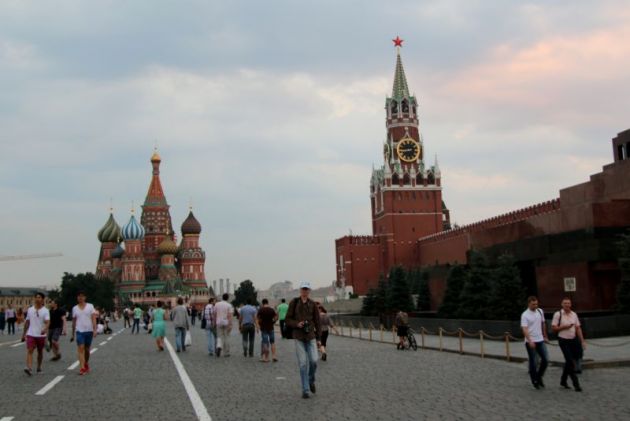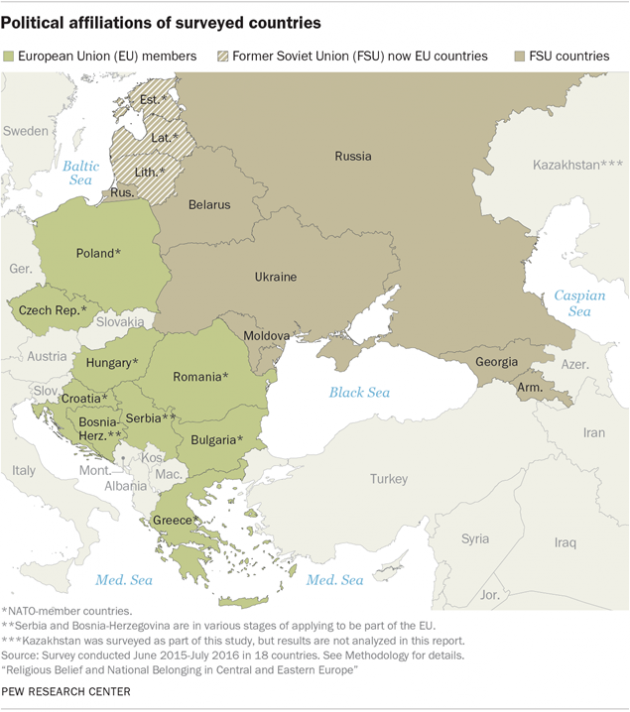Religious belief and national belonging in Central and Eastern Europe intertwine

Religion is reasserting itself as an important part of individual and national identity in many of the Central and Eastern European countries where communist regimes once repressed religious worship and promoted atheism, a new survey by the Pew Research Center.
The results of the survey, released on May 10, around a quarters of a century after the fall of the Iron Curtain show that in Russia, Ukraine and Bulgaria, far more people said they were religiously unaffiliated in 1991 than describe themselves that way in the new survey.
"Roughly a quarter of a century after the fall of the Iron Curtain and subsequent collapse of the Soviet Union...religion has reasserted itself as an important part of individual and national identity in many of the Central and Eastern European countries where communist regimes once repressed religious worship and promoted atheism," a survey statement said.
Today, solid majorities of adults across much of the region say they believe in God, and most identify with a religion.
Orthodox Christianity and Roman Catholicism are the most prevalent religious affiliations, much as they were more than 100 years ago in the twilight years of the Russian and Austro-Hungarian empires.
In many Central and Eastern European countries, religion and national identity are closely entwined.
This is true in former communist states, such as the Russian Federation and Poland, where majorities say that being Orthodox or Catholic is important to being "truly Russian" or "truly Polish."
It is also the case in Greece, where the church played a central role in Greece's successful struggle for independence from the Ottoman Empire and where today three-quarters of the public (76 percent) says that being Orthodox is important to being "truly Greek."
LOW REGULAR ATTENDANCE
Many people in the region embrace religion as an element of national belonging even though they are not highly observant.
Relatively few Orthodox or Catholic adults in Central and Eastern Europe say they regularly attend worship services, pray often or consider religion central to their lives.
For example, an average of only 10 percent of Orthodox Christians across the region say they go to church on a weekly basis.
Indeed, compared with many populations Pew Research Center previously has surveyed – from the United States to Latin America to sub-Saharan Africa to Muslims in the Middle East and North Africa – Central and Eastern Europeans display relatively low levels of religious observance.
